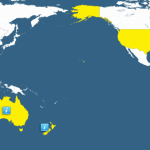Buenos Aires (May 16, 2013).
ALIFAR, the Latin American generic pharmaceutical association, released a press release today announcing that it “decided to collectively support their associations from Chile, Mexico and Peru during TPP negotiations.” The announcement follows a three day meeting in Cartagena de Indias, Colombia. The release recounts that ALIFAR has issued a statement encouraging the Chilean, Mexican and Peruvian Governments “not to accept new and higher IP rights protection and enforcement standards that erode TRIPS’ flexibilities.” The statement continues:
“In that context, ALIFAR will join efforts with those advocacy groups sharing its strategic vision about intellectual property, access to medicines and public health.”
ALIFAR represents fourteen national associations of Argentina, Brazil, Chile, Colombia, Costa Rica, Dominican Republic, Ecuador, El Salvador, Guatemala, Mexico, Paraguay, Peru, Uruguay and Venezuela, and more than 250 pharmaceutical manufacturers in Latin America.
The statement was released by former Ambassador Alfredo Chiaradia and lead counsel Mariano Genovesi (ip@alifar.org).
Sean Flynn, Associate Director of the American University Washington College of Law Program on Information Justice and Intellectual Property, who presented at the ALIFAR meeting in Cartegena Colombia where the resolution was adopted, commented:
“The decision from the entire region to support advocacy on TPP is a reflection of the Association’s acceptance that TPP does not only affect the countries negotiating the agreement. TPP, like the Anticounterfeiting Trade Agreement (ACTA) before it, is being negotiated with the explicit intent to ultimately export its standards much more broadly — first to all APEC countries, and ultimately all countries in the world. Thus, all countries have an interest in working to open it process to observation and participation by the broader public, as well as an interest in heading it off as a vehicle for crafting new TRIP-plus intellectual property rules that will be sold as the new ‘gold standard’ in a proliferation of new forums.”





